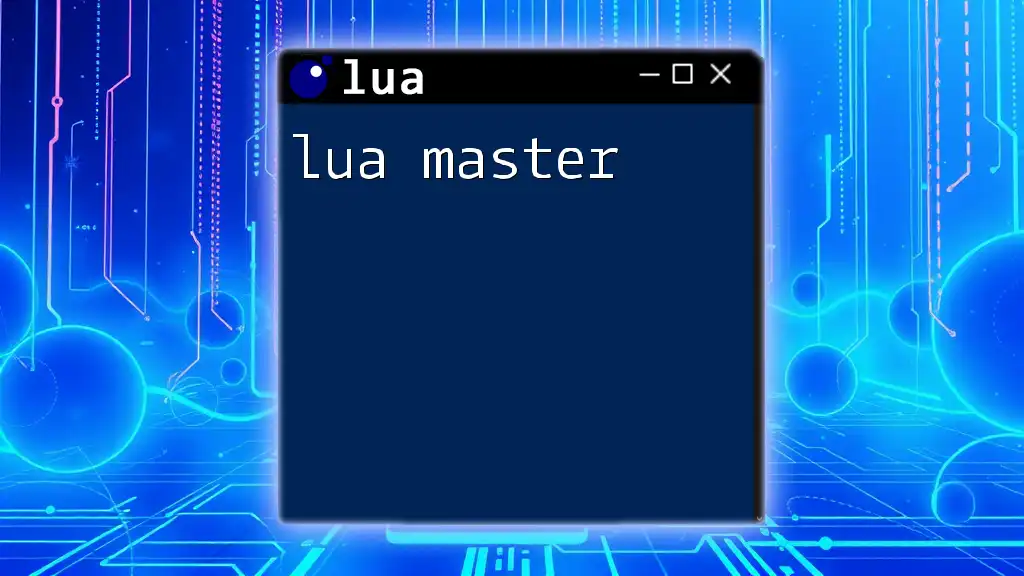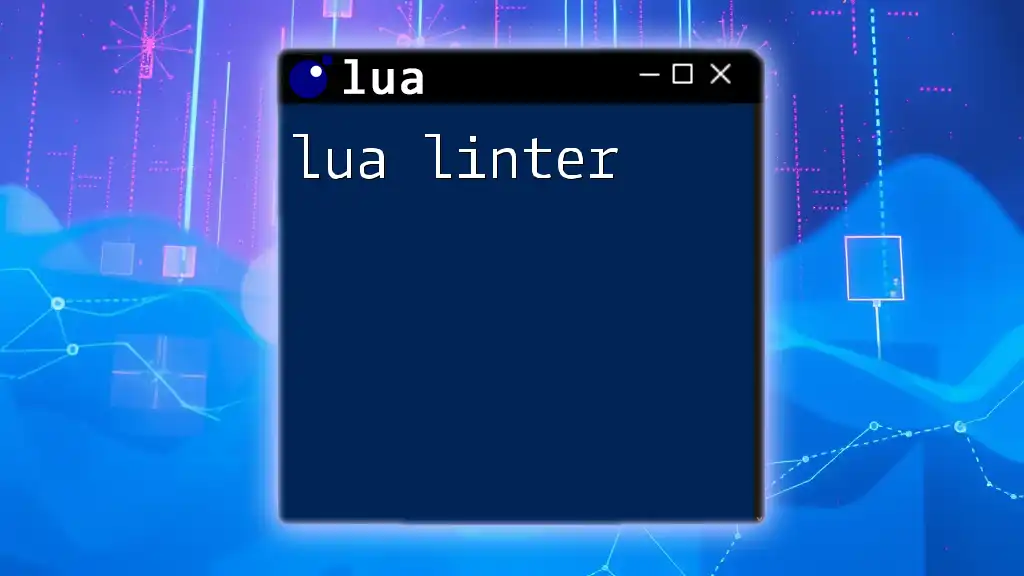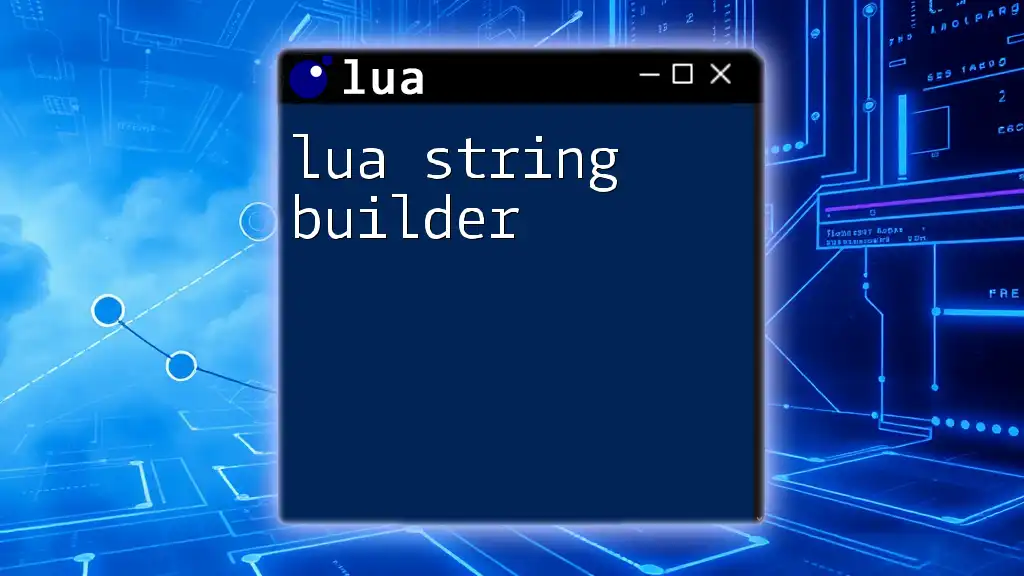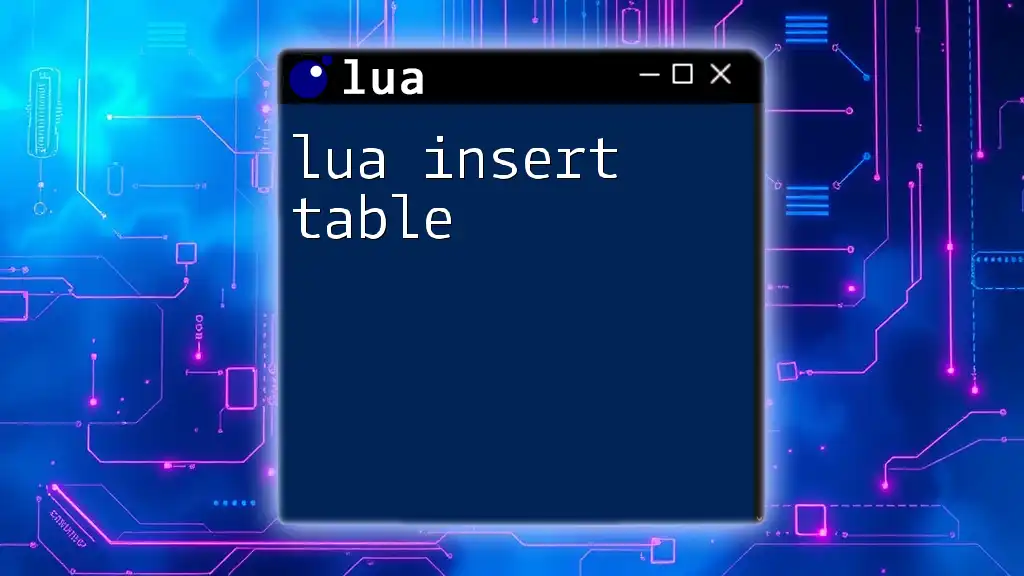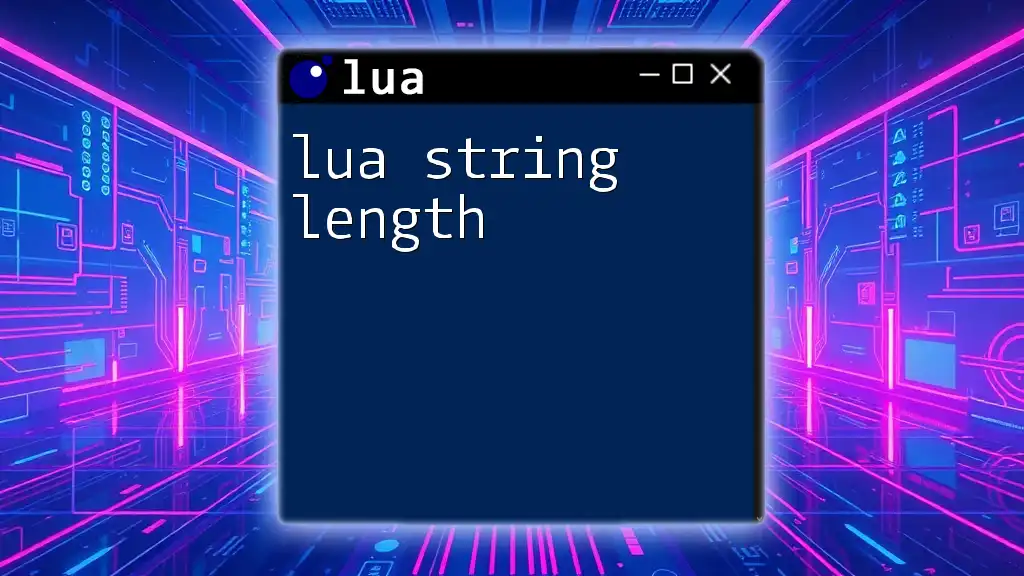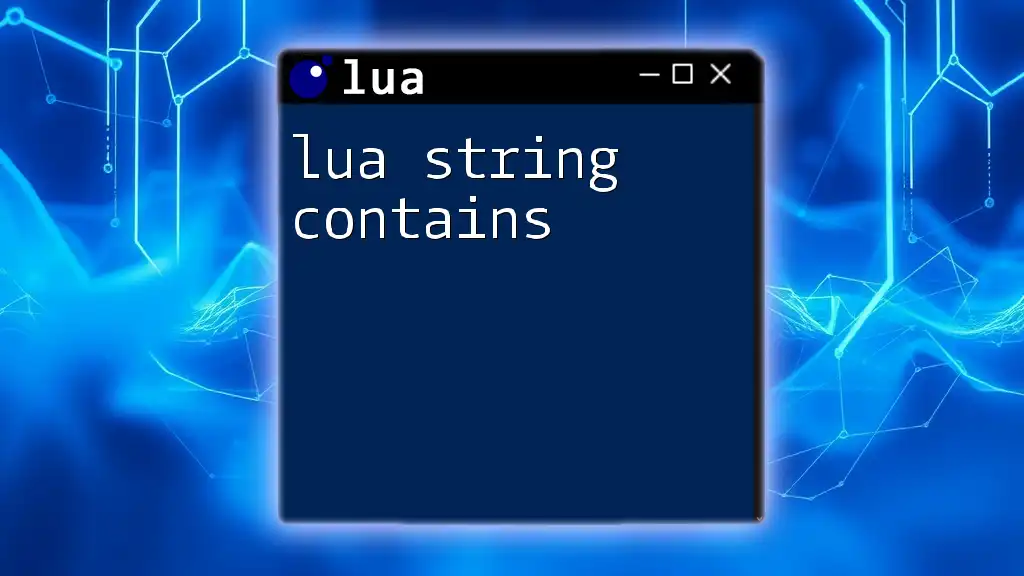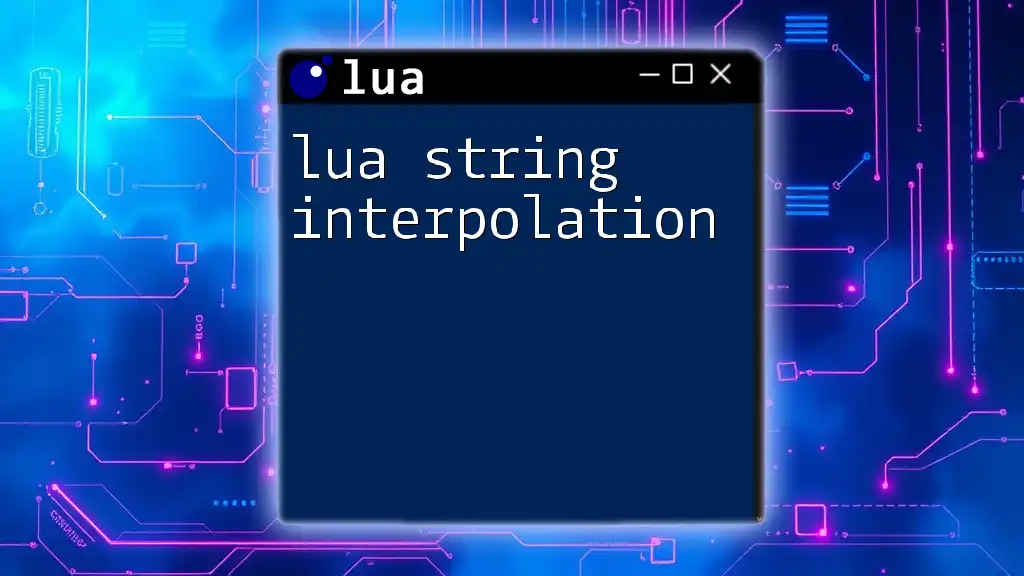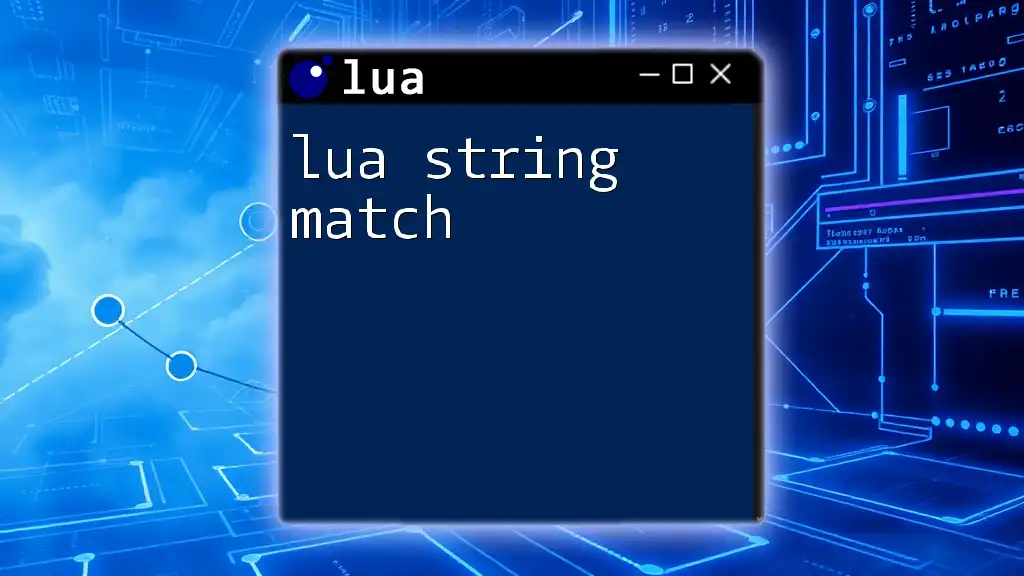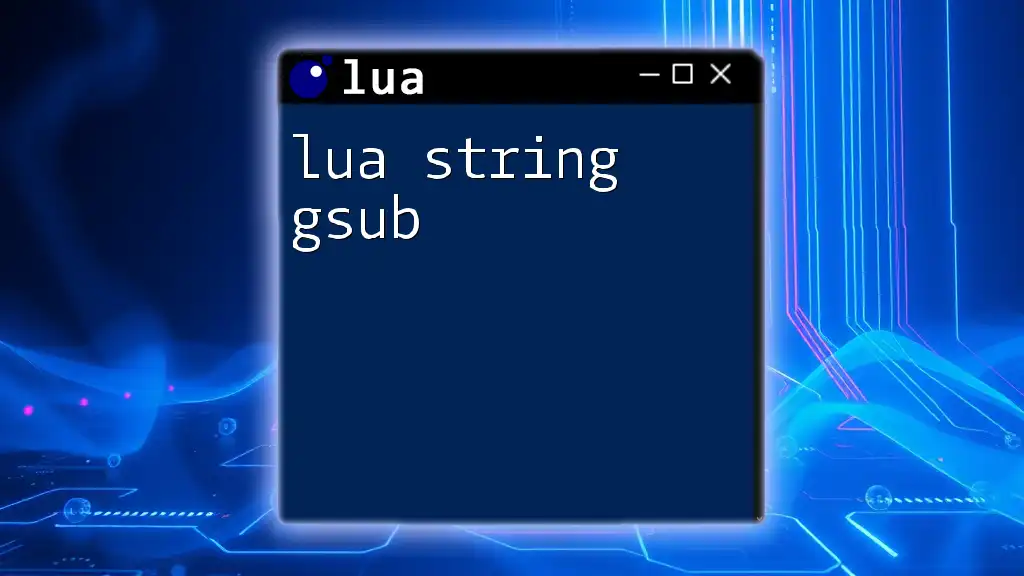Becoming a Lua master involves understanding the fundamental commands and syntax of the language to efficiently script and manipulate data.
Here’s a simple example of defining a function and using it to add two numbers in Lua:
function add(a, b)
return a + b
end
print(add(5, 3)) -- Outputs: 8
What is Lua?
Lua is a lightweight, high-level scripting language that was developed in Brazil in the early 1990s. Its simplicity and effectiveness have made it a popular choice in various applications, particularly in game development, embedded systems, and as an extension language for software. Lua's name translates to "moon" in Portuguese, reflecting its origin and uniqueness.
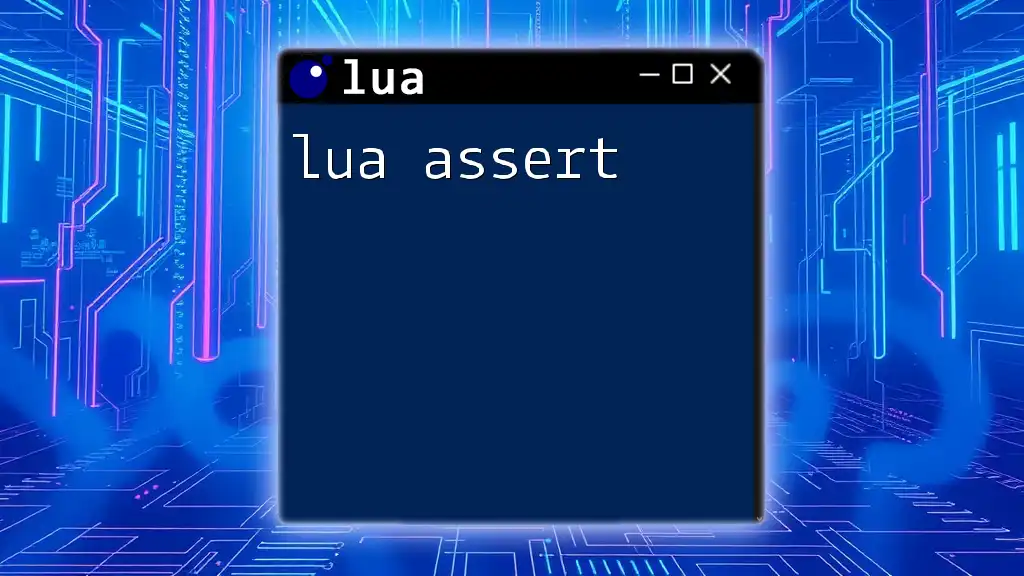
Why Learn Lua?
Learning Lua has numerous advantages:
- Versatility: Lua can be embedded into applications, making it an excellent choice for adding scripting capabilities.
- Performance: It is designed to have a small footprint and execute efficiently, which is crucial for memory-constrained environments.
- Ecosystem: Lua is widely used in game development, notably in engines like Love2D and Corona, thereby creating job opportunities in this thriving sector.
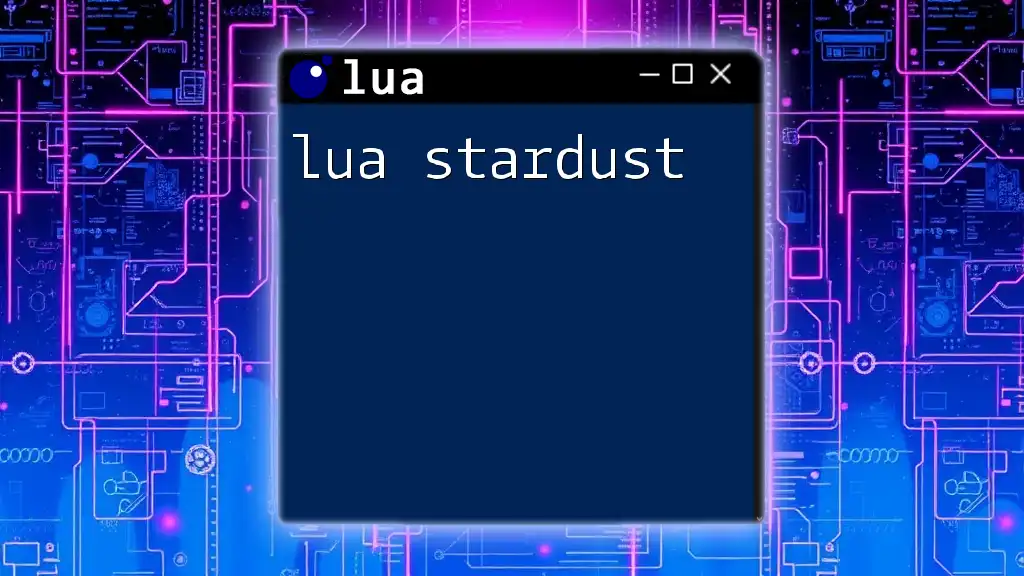
Understanding Lua Basics
Lua Syntax
Comments in Lua
Comments are integral to coding and help improve code readability. Lua supports both single-line and multi-line comments. To add a single-line comment, use two dashes (`--`), and for multi-line comments, use `--[[ ... --]]`.
Variables and Data Types
Variables in Lua are dynamic, meaning they can hold any type of value, and they do not require explicit declaration of type. The common data types in Lua include:
- Numbers: Numeric values (integer and float)
- Strings: Text values encapsulated in quotes
- Booleans: Logical true/false values
- Tables: The only data structuring mechanism in Lua, akin to arrays or dictionaries in other languages
For example, defining variables looks like this:
local myString = "Hello, Lua!"
local myNumber = 42
local myBoolean = true
Control Structures
Conditional Statements
Control flow is crucial in programming, and Lua provides `if`, `elseif`, and `else` to manage it. The following example demonstrates a simple condition:
if myNumber > 40 then
print("Number is greater than 40")
else
print("Number is 40 or less")
end
Loops
Loops allow you to execute code repeatedly. Lua provides two primary looping constructs: the `for` loop and the `while` loop. The following example shows how to iterate through an array:
local numbers = {1, 2, 3, 4, 5}
for i = 1, #numbers do
print(numbers[i])
end

Core Features of Lua
Functions
Functions are foundational in Lua for structuring code. You can define and call functions following this syntax:
function greet(name)
return "Hello, " .. name
end
print(greet("World"))
Anonymous Functions
These are functions without a name and are often used in higher-order functions. For instance, you can pass them as parameters to other functions.
Higher-Order Functions
Lua supports higher-order functions, allowing you to manipulate functions efficiently. Here’s a simple example that illustrates how to pass a function as an argument:
function applyFunction(func, value)
return func(value)
end
print(applyFunction(greet, "Lua Master"))
Tables: The Powerhouse of Lua
Tables are one of Lua's most powerful features, serving as the primary mechanism for data organization. You can create tables to store complex data structures such as arrays and objects.
Understanding Tables
To create a table, you use curly braces `{}`. Here’s a simple example:
local person = {name = "Alice", age = 30}
print(person.name) -- Outputs: Alice
Table Methods
You can iterate through tables using the `pairs` and `ipairs` functions, which are crucial for traversing table elements. Here's how you can loop through a table:
for key, value in pairs(person) do
print(key, value)
end
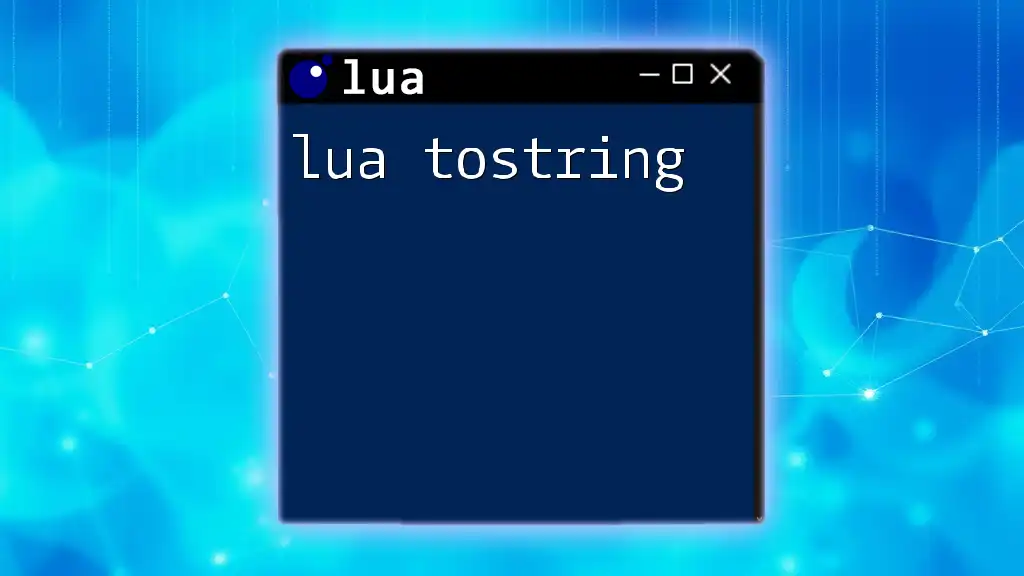
Advanced Lua Concepts
Metatables and Metamethods
Metatables are a powerful feature that allows you to change the behavior of tables. By defining a metatable, you can control how tables interact with operators and function calls.
Common Metamethods
Metatables can redefine operations. Common metamethods include `__index`, `__newindex`, and `__add`. Here’s an example that sets up a metatable to handle missing keys gracefully:
local mt = {
__index = function(table, key)
return "Key not found"
end
}
local myTable = setmetatable({}, mt)
print(myTable.someKey) -- Outputs: Key not found
Coroutines in Lua
Coroutines allow for cooperative multitasking in Lua, providing a way to pause and resume functions. They are especially useful for tasks like animations or handling I/O operations without blocking.
Using Coroutines
Coroutines can be created and resumed with the `coroutine` library features. Here’s an example of using a coroutine:
function myCoroutine()
print("Start coroutine")
coroutine.yield()
print("Resume coroutine")
end
co = coroutine.create(myCoroutine)
coroutine.resume(co) -- Outputs: Start coroutine
coroutine.resume(co) -- Outputs: Resume coroutine
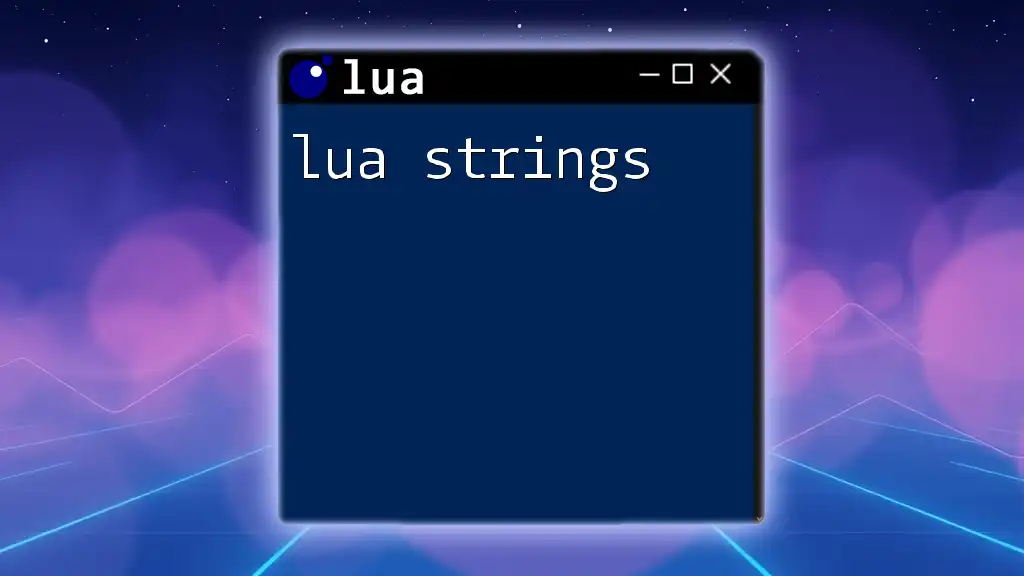
Practical Applications of Lua
Game Development with Lua
Lua is heavily utilized in the game industry, especially in popular game engines like Corona SDK and Love2D. Its scripting capabilities allow designers to implement game mechanics without deep programming knowledge.
As an example, here’s a simple function to create a character in a game:
function createCharacter(name)
return {name = name, health = 100}
end
Automating Tasks with Lua
Lua can be used for automation scripts in various applications (e.g., text editors, image processing software). Here is a basic example of a script that opens Google Chrome:
os.execute("open -a 'Google Chrome'")
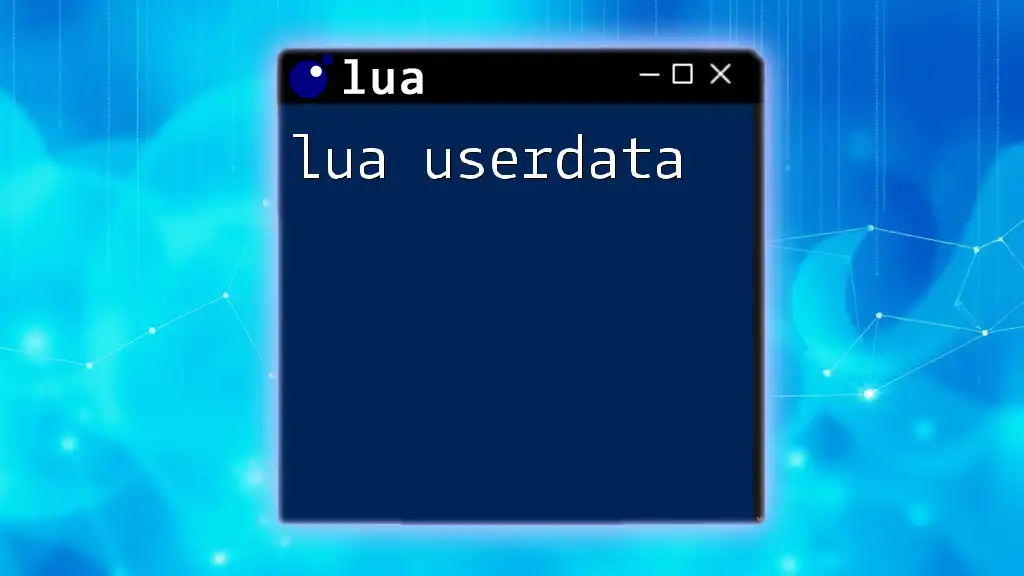
Best Practices for Writing Lua Code
When coding in Lua, maintaining code organization is vital. Modular design increases code readability and facilitates reuse. Additionally, always be aware of performance considerations; Lua’s simplicity often leads to clean code, but avoid overly complex structures to maintain speed.
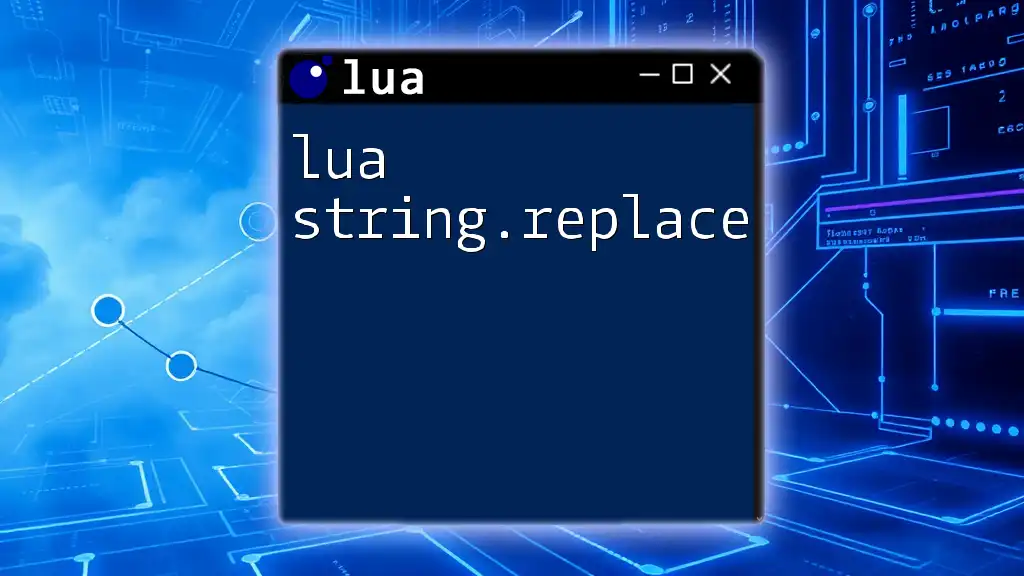
Resources for Continued Learning
To further enhance your Lua skills, consider exploring available online tutorials and courses. Websites like Codecademy and Udemy offer structured lessons. Engage with Lua communities on platforms such as Stack Overflow and GitHub to stay updated with best practices and recent developments.
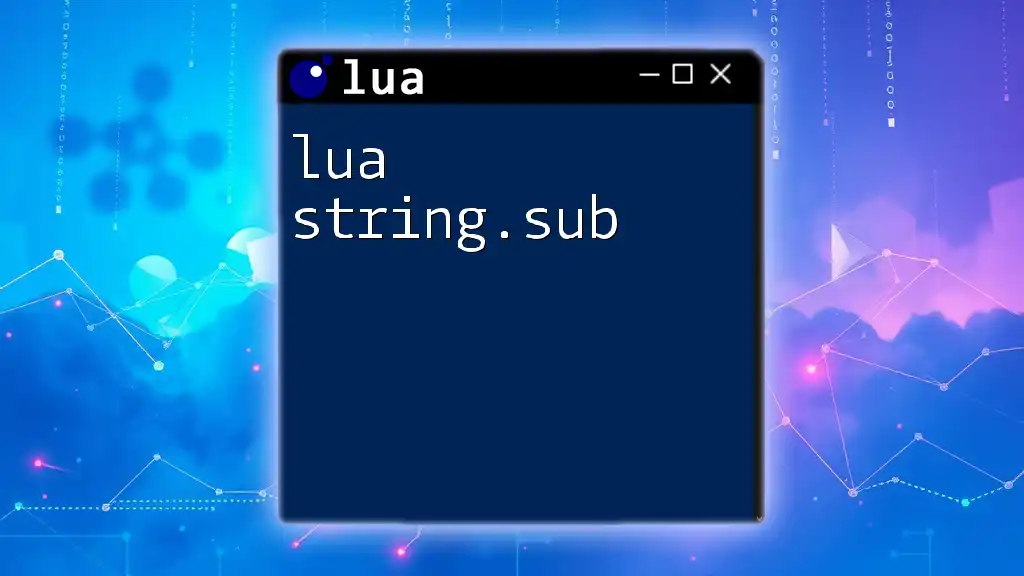
Conclusion
Mastering Lua can propel your programming career to new heights. Its versatility makes it ideal for various applications, from game development to scripting automation. By understanding its core principles and advanced features, you will be well on your way to becoming a true Lua Master! Continue learning, experimenting, and embracing the possibilities that Lua offers.

